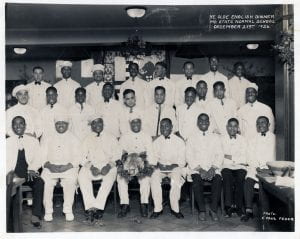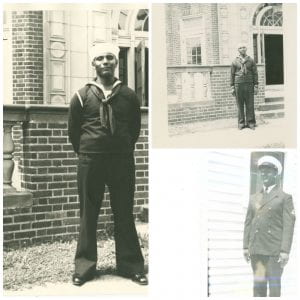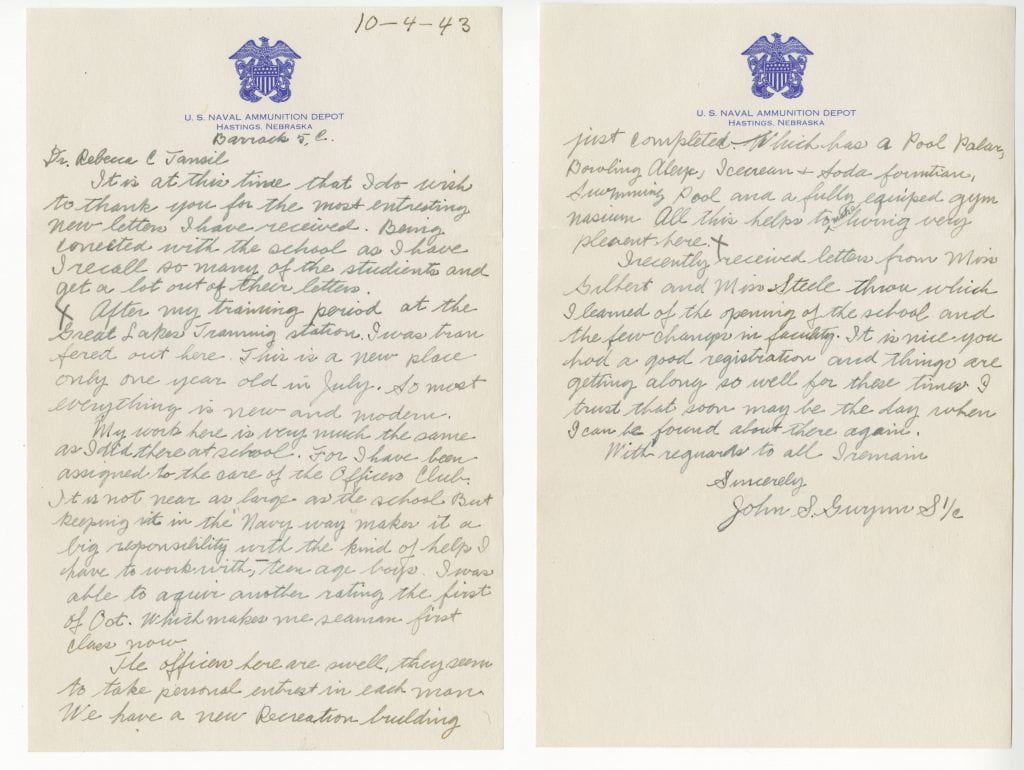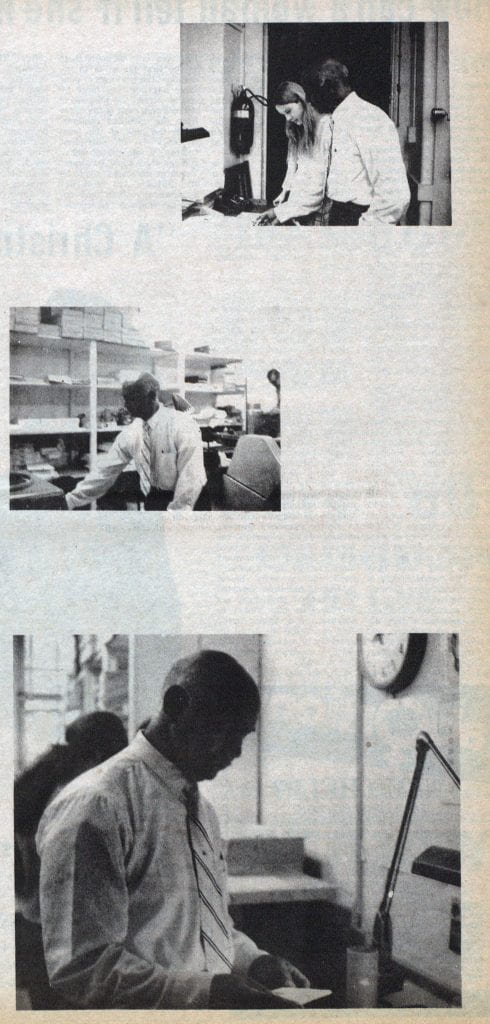It’s not unusual for many generations of the same family to be graduates of Towson. We meet students every semester who tell us that their great-grandparents, grandparents, and parents are alums. Often we’ll search for those alums in our yearbooks, newspapers, and commencement programs, and are rewarded with a result.
What I find striking about Towson, however, is that this phenomenon doesn’t apply just to students, but to staff as well. Many generations of staff members have worked together on this campus, but because of the kinds of records we keep, it is a little harder to find information about them. However, there is one family that stands out in the history of Towson University, and luckily, there’s enough material that we can piece together their story.
Around 1924, a man called Lewis Gwynn was hired by Towson to work on the janitorial staff. Known to his family as Moses L. Gwynn Sr., he came from an industrious and well-educated family. His father, Joshua Gwynn, had been a slave in Glen Arm, Maryland until he bought his freedom some time before the Civil War. His mother, Margaret Roberts, emigrated from Canada and may have been the first black woman to teach in Baltimore County and “probably the initiator of the teacher tradition that is so closely associated with the family” mused a Towerlight article in 1937. Both his parents and all their children could read and write, something that was an accomplishment at a time when over half of minorities aged 14 and older self-reported that they were illiterate. Margaret also wrote poetry and songs. One of her publications is housed in Emory’s rare book collection. The Gwynns purchased a great deal of land in what we now know as Perry Hall, and by the time Joshua Gwynn died in 1907, he was one of the largest land owners in Baltimore County.
During a family reunion on the family land one of Lewis Gwynn’s descendants told the Baltimore Sun, “One of the things I hope they’ll understand is about the nature of freedom. . . . No one can put slavery in your mind. They can put your body into slavery, but they can’t enslave your mind. I know Joshua Gwynn knew that.”
Lewis Gwynn inherited his parents zeal. By 1931, he was head janitor at the Maryland State Normal School. “Lewis’ touch may be found in almost every room,” reported the Towerlight in that same 1937 article. “In one place it may take the shape of the arrangement of flower in some definite pattern; in another it may be merely the sparkling cleanliness of floors and windows

but these gentlemen served students and staff during the
Old English dinners.
and walls; in another it may be a general neat appearance of chairs and desks and tables. His two sons, George and John, both worked at the school as well. John Gwynn started at the school in 1925 when he was 15. He and his brother both attended night school to finish their high school education. George and another brother, Moses Lewis Gwynn Jr., attended Morgan College, while John took night classes in commercial work.
Not only did they work to clean and maintain the school buildings, but they participated in school events. A 1971 Towerlight article wrote of John “At Christmas, he helped serve the once-traditional Olde English dinner, pleasing faculty an students alike with his grace and style. He and other custodians and kitchen help sang for the diners. At the May Day celebrations, Gwynn served. He did anything requested of him. It wasn’t required of him — he wanted to be a part of it.”
John took over as head janitor in 1943 when he was 33. However, his work was in

photographed on campus.
terrupted by World War Two. He was given a farewell by the Lida Lee Tall School in May where he received a wristwatch. By October of 1943, he was in the US Navy and stationed in Nebraska, working in the Officers Club as what he called a “dry land sailor”. Thanks to the efforts of the school to stay in contact with service members, we have letters and photos of John during his time in service. He served in the Navy for the remainder of the war.

Like his father, John was a well-known and beloved person on campus. In March 1950, the Towerlight ran a “Getting Acquainted” article about him. “With a staff of eight members,” it reported, “John is responsible for the upkeep of the Ad. building [now Stephens Hall], the Lida Lee Tall building [now Van Bokkelen], the bookshop and the gym.” In September of that same year, an editorial celebrated his years of service to the school:
John Gwynn: In every community, large and small, there are indefatigable workers whose contributions work to offset the minimum effort of less industrious people. As you reach your twenty-fifth year of service in this college community, we think of you in terms of great contribution — even beyond the call of duty.
After 32 years at Towson, when most workers would be thinking of retirement, John instead changed jobs and became the head of the Duplicating Department, the forerunner of today’s Printing Services department, in 1957. He worked in this department for another 14 years, bringing his total years of service at Towson to 46. Upon his retirement, the Towerlight wrote on December 10, 1971 “He is a man who has done everything from storing props to delivering the keynote address at Dr. Hawkins‘ retirement dinner, and has become part of the Towson tradition.”

John Gwynn died in 1980. An obituary posted in the Baltimore Sun lists not only his long career at Towson, but also 40 years as financial secretary at the Asbury United Methodist Church and almost as long a term of service to the Union of Brothers and Sisters of Ford’s Asbury.
